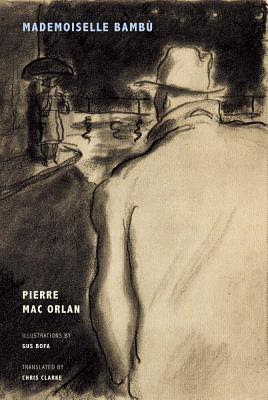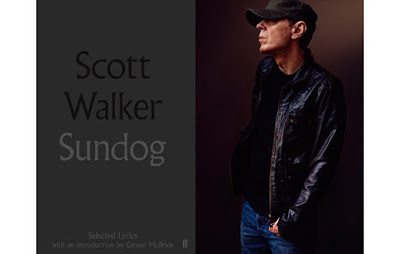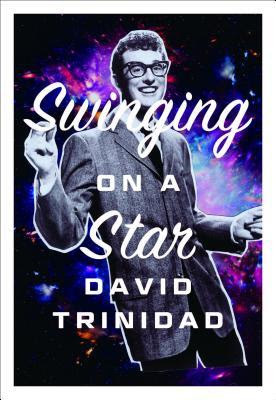Tosh Berman's Blog, page 156
February 23, 2018
Rod McKuen on Tosh Talks
Rod McKuen on Tosh Talks
The first show where I focus on an artist that I really don't care about, or do I? Rod McKuen on the surface is the sort of figure that I never cared for, yet, as I dig deep into some aspects of his work, I'm interested in the connections he has between himself and Jacques Brel, David Bowie, the Beat Generation, Jack Kerouac, Allen Ginsburg, Gregory Corso, and the whole fake "Beatnik"world, with respect to an early album by McKuen, "Beatsville." The number one selling poet in the 1960s and 1970s, who wrote terrible poetry, is still, as one scratches on the surface, I find something of greatly interesting about his life. Which shows, that all artists have some sort of spark that one may miss or not be aware of. "Tosh Talks" Tosh Berman.
Published on February 23, 2018 09:17
February 20, 2018
Les Rita Mitsouko and Catherine Ringer on Tosh Talks
Les Rita Mitsouko and their vocalist Catherine Ringer is magnificent. For me, probably the essential French pop music artists, along with Serge Gainsbourg and Edith Piaf. The band is actually a duo consisting of Ringer and her late husband Fred Chichin. Tony Visconti produced two of their albums "The No Comprendo" and "Marc & Robert," which also features Sparks (Ron Mael & Russell Mael). Their first album was co-produced by the great German producer Conny Plank. After Fred's tragic passing, Catherine made two solo albums "Ring n Roll" and the very recent "Chroniques et Fantaisies." For me, Les Rita Mitsouko reminds me very much of Iggy Pop's "The Idiot." There are traces of Sparks (of course) and T Rex in their sound, but still, Fred and Catherine were (are) a unique music force. On "Tosh Talks" I chat about their brilliance and the French Rock world. - Tosh Berman
Published on February 20, 2018 07:23
February 17, 2018
Andy Warhol Screen Tests on Tosh Talks
Andy Warhol Screen Tests on Tosh Talks
Andy Warhol is too huge of a subject matter for one show. So, on "Tosh Talks" I focus on the Andy Warhol Screen Tests, as well as the film "Empire," which is his portrait of the Empire State Building. Warhol did a series of portraits of people he worked with at his Factory, as well as those who just stopped by like Dennis Hopper, Ann Buchanan, and Edie Sedgwick. "13 Most Beautiful..." is a superb DVD released by Plexifilm. "Andy Warhol Screen Tests" edited by Callie Angell is a must-have book for anyone who is interested in Andy Warhol as well as his cinema. This is one of my favorite episodes. - Tosh Berman.
Published on February 17, 2018 08:54
February 13, 2018
Phil Spector on Tosh Talks
Phil Spector on Tosh Talks
At times I feel like I made up Phil Spector in my imagination, perhaps due that he's a figure that seems cinematic more than human to me. I love everything he has done from his first 'band' The Teddy Bears to The Righteous Brothers to The Crystals/The Ronettes, and the entire 'Wrecking Crew" world. Here on "Tosh Talks," I explore the darkness in his work, which at times reminds me of Martin Scorsese and David Lynch's exploration of evil. Gerry Goffin and Carole King's incredible song "He Hit Me, and it Felt Like a Kiss" as well as the nature of the girl groups all play in the cinematic world of Phil Spector. To Know him is to love him. Still, that's troublesome. - Tosh Berman
Published on February 13, 2018 07:40
February 11, 2018
"Mademoiselle Bambù" by Pierre Mac Orlan and Illustrations by Gus Bofa (Wakefield Press)
 ISBN: 978-1-939663-25-2 Wakefield PressPierre Mac Orlan is a combination of mystery and a total delight. In such fashion, he reminds me a bit of Blaise Cendrars, but more of a figure that is abstract to me. "Mademoiselle Bambu" is a combination of detective/crime fiction mixed in with avant-garde touches of the time. It's a book that is dreamed more than written, but that's a sign that Mac Orlan is a fantastic writer and a literary adventurer. Wakefield Press outdid themselves in putting this book (text) together with the original illustrations by Gus Bofa, whose work is pretty magnificent throughout the book. Also a salute to the translator Chris Clarke for his work on this book.
ISBN: 978-1-939663-25-2 Wakefield PressPierre Mac Orlan is a combination of mystery and a total delight. In such fashion, he reminds me a bit of Blaise Cendrars, but more of a figure that is abstract to me. "Mademoiselle Bambu" is a combination of detective/crime fiction mixed in with avant-garde touches of the time. It's a book that is dreamed more than written, but that's a sign that Mac Orlan is a fantastic writer and a literary adventurer. Wakefield Press outdid themselves in putting this book (text) together with the original illustrations by Gus Bofa, whose work is pretty magnificent throughout the book. Also a salute to the translator Chris Clarke for his work on this book.
Published on February 11, 2018 14:14
February 8, 2018
David Trinidad Swinging on a Star on Tosh Talks
I have a great love for David Trinidad's book of poems "Swinging on a Star on Tosh Talks" Here I gush about his book especially "Ode To Buddy Holly."
Published on February 08, 2018 01:22
February 7, 2018
Scott Walker Sundog Selected Lyrics on Tosh Talks
Tosh Talks special! I give a lecture (Tosh Style) on Scott Walker's music, image, and his new book of selected Lyrics: "Sundog." (Faber & Faber). I even do a bit of Scott, of course, in my own style. - Tosh Berman
Published on February 07, 2018 13:10
February 3, 2018
"Sundog: Selected Lyrics" by Scott Walker (Faber & Faber)
 ISBN: 978-0-571-32857-4
ISBN: 978-0-571-32857-4The great beauty or sadness of Scott Walker is how slow he moves in the 20th century. From the very beginning as a teenage singer to now is a magnificent journey. There are many who have long careers either in writing or music, but Scott Walker has always been a consistent quality-artist, who took his time, and not waste our time. "Sundog: Selected Lyrics" is a remarkable book just focusing on Walker's lyrics. As I read them, I can hear the music, but also I try not to listen to the melody that comes to the words (due to memory) and take the text away from the song. It's very clear to Walker and to Eimear McBride, who wrote the introduction, that these are lyrics and not poems, but to me, there is a fine thread standing between poetry and lyrics -especially in the mind of Scott Walker.
"Sundog" is part of a series that Faber and Faber have been publishing over the years. For instance, there is a Jarvis Cocker book of lyrics as well as Billy Bragg. I suspect that Cocker may have something to do with the series, because he was (or still is) the editor at F&F. They all have the same elegant design and reading the Jarvis book as well as Scott's, they stand alone as literature. Walker is a genius in what he does. Reading the lyrics without the music in the background is like watching sculpture made out of words. In this sense, to me, he's very much a poet. He's not a lyricist in the sense of Cole Porter or Elvis Costello, but more of a sound artist who uses words. The brilliant aspect of his lyrics is that Walker can write about terrible violence or emotional distress but be funny at the same time. He has this incredible talent for throwing in one or two words or phrases that cut the violence of the piece and make it almost like a music hall entertainment. It's the contrast between his words, which are carefully written and thought out. When you hear his music, the words sometimes matches with the intensity of the sound, but a lot of times he throws in something ridiculous and it's really funny. The intensity of the work lightens up, but never loses its seriousness or purpose. It's a balancing act. In a way, it is like Jack Nicholson in "The Shining" yelling out "Here's Johnny."
"Sundog" is superb poetry, or if you wish, song lyrics. I read the book in one sitting, but I'm going to go back to it again and again. The textures and how the word (or wordings) are placed on the page is equally important to the spaces in his music - where you reflect on what's happening aurally, as well as the sound mixing in with his magnificent voice. Great book.
Published on February 03, 2018 11:23
January 29, 2018
"Swinging on a Star" by David Trinidad (Turtle Point Press)
 ISBN: 978-1-933527-97-0 Turtle Point Press
ISBN: 978-1-933527-97-0 Turtle Point PressA small book that's gives out big awards. David Trinidad's book of poems "Swinging on a Star" is perfection at work. A poet who always keeps his vision and language in an exceptional form. I think I'm around the same age as Trinidad, and the pop cultural references that are in his poetry fits my or our generation greatly. For anyone outside that world, the poems are inviting and will bring new discoveries to the new reader. For me, it's like dipping into a pool of great pleasure. Some of the poems are simple imagery, and others are like biting into a ripe fruit and enjoying its freshness and the different textures that come with the taste of that first bite.
It's always dangerous to compare one poet to another, but I think anyone who enjoys the work of the so-called New York School of Poetry such as Frank O'Hara, John Ashbery, James Schulyer, Kenneth Koch, and Barbara Guest would appreciate David Trinidad's poetry. I mention the above poets because they too filter pop culture within their work, which brings their world a larger landscape for the reader. The longest piece here is one of Trinidad's greatest poems: "Ode to Buddy Holly." Here he writes about the visit to Holly's hometown, and where is he is buried, Lubbock Texas. For me, who loves Holly's music, this is an incredible impression of the man, his burial grounds, home, and the nature of his death through the means of a plane accident. It's a moving poem that works on various levels. For one, Trinidad is a good reporter (through poetry) and how he recounts his time at the location, and how poetry brought him there, is him coming to a meeting with Buddy Holly as a fellow artist. The greatest gift from one artist to another is an appreciation and how that person's work sinks into the other's
poetry.
"Swinging on a Star" is another fantastic book by one of the great American living poets. Also a nod of my hat to Turtle Point Press who has a history of publishing great books.
* I intereviewed David Trinidad on my cable TV show from the 1980s "Tea With Tosh" You can see it here: https://youtu.be/6EWTDIG-zoE
Published on January 29, 2018 11:14
John Cale New York in the 1960s on Tosh Talks
John Cale is without a doubt, a major figure in music. Along with Lou Reed, Sterling Morrison, Moe Tucker, Cale played a huge role in The Velvet Underground. Cale brought in the influence of experimental and drone music. About ten years ago, the record label Table of Elements put out a five-disc box set (a real wooden box by the way)called "John Cale New York in the 1960s." A brilliant packaging of early experimental music by Cale with the assistance of Tony Conrad, Angus MacLise, and the great artist/performance artist and filmmaker Jack Smith (Flaming Creatures). Here on "Tosh Talks" I focus on this particular box set and the way he used a portable reel-to-reel tape machine manufactured and designed by Wollensak, as well as the Hungarian instrument Cimbalon. - Tosh Berman
Published on January 29, 2018 08:54



